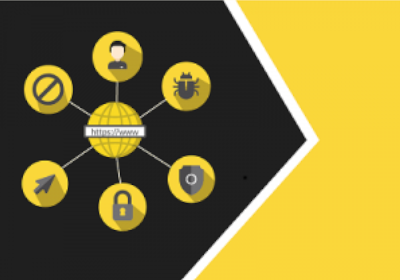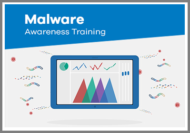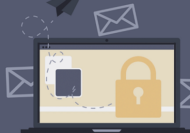Description
What topics are included in the Data Protection and Cyber Security Suite of 10 Online Courses?
Module 1 – Data Protection
Data protection should be obvious, but unfortunately, our data continues to be taken advantage of worldwide every single day. If you run a business and want to demonstrate how much you care for your workers, customers, and suppliers, let this course show you how to gather, store, and process data lawfully.
Module 2 – Incident Response
Incident Response is a comprehensive course focused on effectively preparing for, managing and mitigating cyber security incidents. You will gain expertise in identifying, assessing, and responding to various cyber threats.
Module 3 – Online Safety
Learn the art of secure passwords, encryption, and network fortifications. Discover the hacker’s mindset with ethical hacking insights. After completion, you will emerge as a cyber security champion, ready to protect systems, investigate breaches, and fortify digital landscapes.
Module 5 – PCI DSS
In this course, you’ll learn how the most efficient and security-conscious organisations safeguard their payment data, and how you can do the same, using strict PCI DSS goals and requirements.
Module 6 – Phishing
You’ll likely find yourself on a fake webpage that will instantly take control of your computer, downloading dangerous malware or stealing your sensitive information. In this course, you’ll learn how to spot even the smallest of red flags that an email could be malicious and what to do about it.
Module 7 – Physical Security
Cyber criminals never rest. They sleep with one eye open to continually find new ways to penetrate your home and workplace’s shields, working hard to steal your sensitive information and data. Thankfully, you can ensure their efforts are futile by knowing what to look out for, how to catch unauthenticated individuals in their tracks, and how to implement effective physical security measures at home and the office.
Module 8 – Security Essentials
Basic cyber security practises, such as being able to identify telephone scams and manage your passwords securely will keep your data safe. Our cyber security awareness module is a great way to build your knowledge and safeguard yourself in the digital ocean.
Module 9 – Social Engineering
Social engineering is real, and no one is immune. The risks are alive and burning 24 hours a day, 365 days a year, whether you’re at home, the office, or somewhere in-between. Social engineers are intelligent individuals, going to extraordinary measures to build trust and rapport with their victims before exploiting these relationships in favour of valuable data and cash.
Module 10 – Telephone Attacks
Cyber criminals target using our most trusted form of communication: our phone.
The technology behind telecommunications is open for exploitation – and cyber criminals know this! Criminals impersonate our most trusted contacts, in the hope that they can fool us into divulging sensitive information, transferring money or even agreeing to allow them access to premises.
Learning objectives
By the end of this course you will be able to:
- Define the GDPR and understand why it exists
- Evaluate whether data falls under “personal” or “special category information”
- Summarise the rights and responsibilities of your organisation and all the people in it
- Define how social engineers target us and understand business continuity planning
- Explain domain construction and identify domain impersonation techniques
- Summarise the psychology behind social engineering attacks
- Create strong passwords and know how to secure them
- Demonstrate how passwords protect sensitive documents and accounts
- Fully understand, summarise, and explain the core goals and requirements of PCI DSS
- Identify and recommend effective compliance methods and techniques
- Understand and explain what phishing is, and what the intentions of cyber criminals are
- Analyse the structure of a domain and highlight potentially malicious email addresses and links
- Understand how the dangers of phishing affect one’s personal life and workplace
- Make informed decisions with confidence to ensure uncompromised security when working remotely
- Prepare for device loss via theft or misplacement, and how to prevent unauthorised access even from afar
- Create and maintain a more secure computer and server environment at home and work
- Build effective security practices at your household and office spaces
Entry requirements
There are no entry requirements.
Course assessment and certification
On successful completion of the final assessment a downloadable certificate is immediately available from your Online Training Academy Dashboard







 UK: 0844 854 9218 | International: +44 (0)1488 580017
UK: 0844 854 9218 | International: +44 (0)1488 580017






















